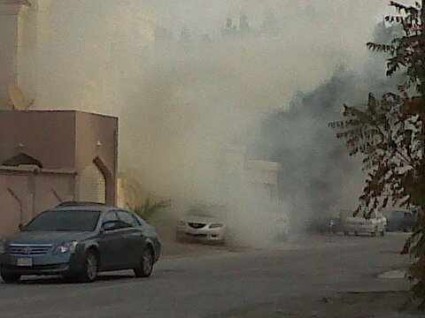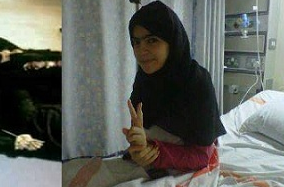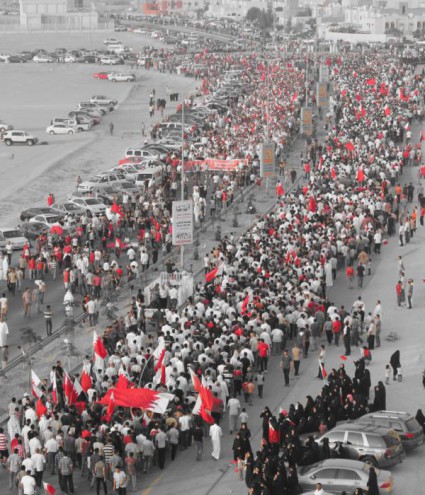Desperation, survival and escape from the human condition called oppression – tyranny names the terrorist
How I became a ‘terrorist’
At 16, entering the steel gates of the Israeli military prisons, I could never go back to my former life. Levinger’s outpost, his settler violence, permanently changed my life.
By Abdelrahman Al Ahmar
The first time I was attacked by an Israeli settler, I was 14 years old. I was walking to school when an armed man wearing a skullcap, standing near some Israeli soldiers, pulled my pack off my back and threw it in the mud. That wasn’t last month, nor was it near a new outpost in Nablus. Rather, this happened 30 years ago, on the main road running through Bethlehem, near Deheisheh refugee camp, where I lived. The settler was not just any alienated, disaffected man. He was, I learned later, the father of the national religious settlement project – Rabbi Moshe Levinger.
In those days, the settlers and the Egged buses on their way to and from the nascent settlements in the area would drive right by the camp. Their vehicles were often the targets of many rocks: Who among us wanted armed Israelis using our roads? Levinger wanted to show us who was boss. At first he would stop his car, and chase and try to attack us. He would scream at the soldiers stationed on the road to arrest and beat the kids. Soldiers would then fire tear gas and play cat-and-mouse with us in the camp’s alleys.
Emboldened by army support, Levinger and his fellow “pioneers” would enter the camp and open fire randomly. Clashes would ensue. The soldiers would then run after us and make arrests while Levinger and his friends would return to their cars and drive home to their settlements. The violence became a daily event.
This is what life was like for me and my friends during these years. For Levinger and his nationalist movement, it constituted a disruption of their commute to and from Jerusalem. To placate these champions of Zion, the Israel Defense Forces finally erected a nine-meter-high fence, topped with barbed-wire, around Deheisheh. The camp’s thousands of residents now had a single way in and out, and it was guarded by soldiers, making it like living in a prison. A 7 P.M. curfew was in place for years. …more
December 23, 2011 Comments Off on Desperation, survival and escape from the human condition called oppression – tyranny names the terrorist
Women, Revolution, Politics and Power
Because current Arab revolutions are not led by a single party with a formal structure and ideology, the post-revolutionary struggle for power is often surprising, incomprehensible and nebulous.
Women, Revolution, Politics and Power
by Dalal al-Bizri – Gunda Werner Institute
Revolution is a broad church; it is a warm embrace, welcoming, lavish; it is a time of rapture, hope and dreams; it is the festival, the ‘carnival’ as some call it. So many of those who take part in it claim to be happy, to have been reborn, risen again from death. So many have wept for joy.
Revolution is an epic of beatification. Its participants and sympathisers imagine that their lives will be better after it has won out and tyranny has fallen— they will be able to succeed, to build, to achieve—for revolution is like an amnesty, like the month of Haram when no blood may be shed. It is a state of pure solidarity in which those who yesterday were strangers, of every stripe and type and creed, sing in harmony, their sensitivities, the jealousies and resentments that divided them, vanished in the wind. It is an unprecedented state that gives birth to unprecedented: martyrdom and sacrifice, the rise to prominence of those who were once alienated from politics, and at their head, women.
Before the current Arab revolutions women had little to do with politics. Those who reached positions of official power were possessed of a corrupt and authoritarian mentality or were taken by the superficial appeal of their offices. In civil society they were a little more fortunate, but in society at large women were allowed no political say or occupation. Roles were strictly apportioned along gender lines, a deficiency exacerbated by the comatose state of pre-revolutionary society in which all avenues for advancement remained shut off.
When the revolutions began, women took to the stage in unprecedented numbers. They entered politics through the demonstrations, the revolutionary activity par excellence, and though their presence and visibility in these positions varied considerably it was nonetheless genuine and undeniable. The revolutions are neither nationalistic nor class-based, but democratic, and as one of their guiding principles is the championing of human rights, it is only logical that women’s rights should be elevated with them. Women, after all, are humans, too.
This positive aspect of the revolution was not a consciously formulated position but was implicit in it. No less implicit was the revolution’s central aim— bringing down tyranny—and any attempt to highlight secondary aims, such as women’s rights was seen as a threat to the movement’s objectives. Yet this more negative corollary did not prevent women taking part with all the fervour of those who believe that they have been promised a greater role in a matter that is as important for them as it is for men, i.e.: the matter of their interest and engagement in the political life and issues of the countries where they live. Revolution is thus something that is by its very nature political and concerns everybody: it welcomes women’s participation.
Post-revolution, politics cedes to issues of power. Immediately that the central demand of the revolution has been granted the political arena shrinks and the battle for control begins. The agency of the individual is reduced to its lowest ebb. The framework within which a new legitimacy will be forged is yet to take shape and the movement for change loses its appeal. Between two worlds, it is a time in which the most organised assume control rather than the most dedicated or effective. And as long as the political struggle continues, so it remains: the preserve of the most organized and the best equipped to wield power.
If the majority of men are excluded by this process, then all of the women certainly are. Women have no experience of organised politics or of exercising power. In our current post-revolutionary, or ‘transitional’ state, the public mood changes. The Egyptian author Ezzedine Choukry Fishere describes Midan Tahrir a week after Mubarak’s resignation:
“It’s strange… The square is full of food containers and plastic bags. The youths who bustled about carrying rubbish bags have vanished. The demonstrators, with their open hearts, their organization, their music, their artistic exuberance and their clever, playful sings, have disappeared and in their place jostling crowds of unfeeling louts…’ (New Carmel Magazine, Summer 2011, p.155)
In the days that followed the mood will become more hostile. Women are not only excluded from politics, but also subjected to extreme violence, instances of which are documented by women’s and rights groups.
It’s the Algeria Syndrome. During Algeria’s revolutionary war in the late Fifties and early Sixties of the last century, Algeria’s women stood side by side with men, suffering hardship and making sacrifices. As soon as the revolution achieved its purpose, these women were sent home, gradually oppressed and marginalized and subjected to every kind of violence and discrimination. The syndrome this gave rise to is reflected in the country’s female revolutionary literature: the experience may have been a negative one, but the women accepted it.
Yet there is something else, as well. Because current Arab revolutions are not led by a single party with a formal structure and ideology, the post-revolutionary struggle for power is often surprising, incomprehensible and nebulous. The decreasing participation of women in politics, or the discrimination against them, does not manifest itself in familiar, traditional ways, though the two expressions of bigotry are linked. It takes time to understand the motives and mechanisms that lie behind this new form of bigotry. In both Tunisia and Egypt, women’s demonstrations have come under attack from individuals or small aggressive groups who scream in their faces for them to go home or get back to the kitchen, their ‘natural place’. We should also mention the wide range of activities through which Salafis express their views and positions on women. …more
December 23, 2011 No Comments
Lament of the Wealthy in America, absent sober reflection on the Squares running red with blood of arrogant Capitalists, in China not so long ago
A Christmas Message From America’s Rich
From Matt Taibbi – 23 December
It seems America’s bankers are tired of all the abuse. They’ve decided to speak out.
True, they’re doing it from behind the ropeline, in front of friendly crowds at industry conferences and country clubs, meaning they don’t have to look the rest of America in the eye when they call us all imbeciles and complain that they shouldn’t have to apologize for being so successful.
But while they haven’t yet deigned to talk to protesting America face to face, they are willing to scribble out some complaints on notes and send them downstairs on silver trays. Courtesy of a remarkable story by Max Abelson at Bloomberg, we now get to hear some of those choice comments.
Home Depot co-founder Bernard Marcus, for instance, is not worried about OWS:
“Who gives a crap about some imbecile?” Marcus said. “Are you kidding me?”
Former New York gurbernatorial candidate Tom Golisano, the billionaire owner of the billing firm Paychex, offered his wisdom while his half-his-age tennis champion girlfriend hung on his arm:
“If I hear a politician use the term ‘paying your fair share’ one more time, I’m going to vomit,” said Golisano, who turned 70 last month, celebrating the birthday with girlfriend Monica Seles, the former tennis star who won nine Grand Slam singles titles.
Then there’s Leon Cooperman, the former chief of Goldman Sachs’s money-management unit, who said he was urged to speak out by his fellow golfers. His message was a version of Wall Street’s increasingly popular If-you-people-want-a-job, then-you’ll-shut-the-fuck-up rhetorical line:
Cooperman, 68, said in an interview that he can’t walk through the dining room of St. Andrews Country Club in Boca Raton, Florida, without being thanked for speaking up. At least four people expressed their gratitude on Dec. 5 while he was eating an egg-white omelet, he said.
“You’ll get more out of me,” the billionaire said, “if you treat me with respect.”
Finally, there is this from Blackstone CEO Steven Schwartzman:
Asked if he were willing to pay more taxes in a Nov. 30 interview with Bloomberg Television, Blackstone Group LP CEO Stephen Schwarzman spoke about lower-income U.S. families who pay no income tax.
“You have to have skin in the game,” said Schwarzman, 64. “I’m not saying how much people should do. But we should all be part of the system.”
There are obviously a great many things that one could say about this remarkable collection of quotes. One could even, if one wanted, simply savor them alone, without commentary, like lumps of fresh caviar, or raw oysters.
But out of Abelson’s collection of doleful woe-is-us complaints from the offended rich, the one that deserves the most attention is Schwarzman’s line about lower-income folks lacking “skin in the game.” This incredible statement gets right to the heart of why these people suck. …more
December 23, 2011 Comments Off on Lament of the Wealthy in America, absent sober reflection on the Squares running red with blood of arrogant Capitalists, in China not so long ago
Babies wait on the day King Hamad is no more – Gas victim Sitra 22 December – Secretary Clinton your “friends’ in Bahrain are doing your dirty work gassing babies!
December 23, 2011 Comments Off on Babies wait on the day King Hamad is no more – Gas victim Sitra 22 December – Secretary Clinton your “friends’ in Bahrain are doing your dirty work gassing babies!
Gas Assault on Tubli 23 December
December 23, 2011 Comments Off on Gas Assault on Tubli 23 December
Free Ashwaq Almagabi!
11 Nov 2011 – BCHR – Ashwaq Almagabi, 17 years old girl, one of 7 minors and 38 women arrested in the city centre case following a peaceful protest, suffers from severe degree sickle cell which worsened due to prison condition and ill-treatment; she has been hospitalized more than once to then be admitted to Salmanyia hospital for weeks before the doctor ordered her release. Today she was re-arrested from the hospital by the police to start her 6 months imprisonment sentence. …more
December 23, 2011 Comments Off on Free Ashwaq Almagabi!
The Gassing stokes the Fire of Protest – King Hamad your violence Masters you as the Fool
December 23, 2011 Comments Off on The Gassing stokes the Fire of Protest – King Hamad your violence Masters you as the Fool
King Hamad’s gassing and violence fail to halt Protests, Rallies and Demonstrations in every corner of every village in Bahrain
December 23, 2011 Comments Off on King Hamad’s gassing and violence fail to halt Protests, Rallies and Demonstrations in every corner of every village in Bahrain

































